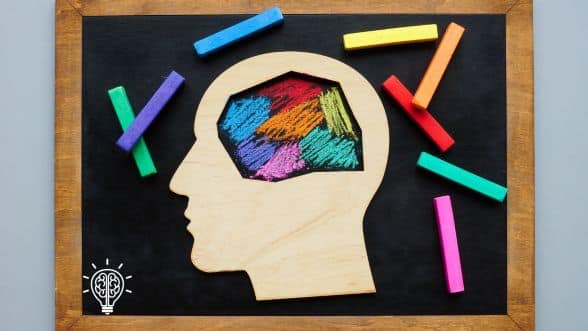
As a parent of a neurodivergent teen, you’re likely aware of the challenges they face in navigating school, social situations, and daily tasks. These struggles often stem from executive function deficits—skills that are crucial for academic achievement, independence, and life success. But what exactly is executive function, and how can you support the development of executive functions in neurodivergent teens? In this guide, we’ll explore the basics of executive function, its importance for neurodivergent teens, and how you can help your child thrive both at home and through professional coaching.
What are Executive Functions?
Executive functions are essential life skills that aren’t necessarily taught in school but are crucial for long-term success. These mental processes empower individuals to plan, focus, adapt, and achieve their goals. Without strong executive functions, managing daily tasks, schoolwork, or life challenges can feel overwhelming—especially for neurodivergent teens.
At New Frontiers Executive Function Coaching, we break executive functions down into four key areas that build on each other: Pre-Executive Skills, Core Executive Functions, Active and Structural Executive Functions. Together, these skills empower individuals to manage themselves effectively and stay on track to achieve their goals.
Key Components of Executive Function:
Pre-Executive Skills
These foundational skills lay the groundwork for effective executive function performance. They involve essential cognitive processes like metacognition and goal-setting, which are necessary for understanding one’s abilities and setting realistic, achievable objectives.
- Metacognition: The ability to understand and manage one’s own cognitive processes. It’s about self-awareness and being able to think about how you think and learn.
- Goal Setting: The process of defining clear, measurable, and achievable objectives. This skill is vital for giving direction and purpose to one’s actions.
Core Executive Functions
These are the central cognitive processes that allow individuals to control their thoughts, behavior, and emotions to achieve their goals. They form the foundation for higher-order thinking and more complex executive functions later in life.
- Inhibitory Controls: The ability to resist impulses and distractions, staying focused on the task at hand.
- Working Memory: The ability to hold and manipulate information over short periods, which is crucial for problem-solving and following multi-step instructions.
- Cognitive Flexibility: The skill to adapt thinking and behavior in response to new information, changing environments, or unexpected challenges.
Active Executive Functions (The “Doers”)
These skills help individuals efficiently initiate, manage, and complete tasks. They ensure that we can start tasks on time, switch between activities seamlessly, and stay on track until completion.
- Task Initiation: The ability to begin tasks without procrastination and approach tasks in an efficient manner.
- Cognitive Shifting: The capacity to transition smoothly between tasks, activities, or thought processes, particularly when switching gears is necessary.
- Self-Monitoring: The skill to continually evaluate one’s progress and adapt behavior in response to feedback or environmental changes.
- Goal-Directed Persistence: The ability to stay focused on goals despite obstacles or setbacks, maintaining the drive to keep moving forward.
Structural Executive Functions (The “Enablers”)
These are the skills that provide the structure and organization necessary for effective executive functioning. They allow individuals to manage time, plan effectively, and organize tasks and resources.
- Planning: The ability to create a roadmap for achieving goals by outlining the necessary steps and strategies.
- Prioritizing: The skill of determining which tasks and activities are most important based on urgency and long-term goals.
- Time Management: The ability to be aware of and use time efficiently, balancing competing priorities to meet deadlines.
- Organization: The capacity to arrange resources and tasks in an orderly way, making it easier to find what’s needed and stay on top of responsibilities.
These combined skills empower individuals to manage themselves, solve problems, and adapt to new challenges as they work toward their goals. Strengthening executive functions provides neurodivergent teens with the tools they need to navigate the academic world and beyond with confidence and resilience.
Why Is Executive Function Crucial for Neurodivergent Teens?
For neurodivergent teens, deficits in executive function can lead to academic underperformance, procrastination, missed deadlines, and social struggles. Without strong executive function skills, they may find it challenging to balance their responsibilities, leading to stress, frustration, and feelings of inadequacy. Executive functions for neurodivergent teens develop differently. Individuals with learning differences can struggle learning strategies that are not explicitly taught to them.
However, with the right strategies and support, these skills can be learned and then improved upon. Helping your teen strengthen their executive function abilities can lead to better academic outcomes, improved relationships, and higher self-confidence.
How Parents Can Support Executive Function Development
As a parent of a neurodivergent teen, your support plays a vital role in helping them build their executive function skills. However, fostering independence and problem-solving abilities requires a delicate balance between guidance and allowing your teen the space to learn through their own experiences. Here are some strategies to help your child develop strong executive functions at home:
- Incorporate Learning Opportunities Through Struggle
It’s natural to want to protect your child from challenges, but allowing them to struggle is an essential part of growth. Encourage a growth mindset by reframing struggles as opportunities to learn. When they encounter a setback, help them reflect on the experience:
-
- What went wrong?
- What could we do differently next time?
By focusing on the lessons rather than the failure, you promote resilience and help them develop problem-solving skills that will serve them in the future.
- Teach Specific Skills When They Ask for Help
When your teen seeks help, it’s a great opportunity to explicitly teach skills like planning, breaking down tasks, or organizing time. Rather than jumping in to fix things, guide them through the process:
-
- Planning: If they’re overwhelmed by a large project, teach them how to break it down into manageable steps.
- Task Management: Show them how to prioritize tasks or use tools like calendars and checklists.
But make sure your teen wants the help—offering unsolicited advice can feel overwhelming or controlling. Wait for them to ask for guidance, or gently ask if they’d like some help.
- Use Questions, Not Comments
Instead of telling your teen what to do with phrases like “You should…,” use questions that guide them to their own conclusions:
-
- “What do you think is the best next step?”
- “How could you approach this problem differently?”
By encouraging them to think through the issue themselves, you’re helping them develop their own problem-solving skills. This approach also makes them feel empowered rather than directed, increasing their independence.
- Encourage Problem Solving, Don’t Provide Solutions
When your teen is facing a challenge, it’s tempting to jump in with a better solution. However, this can make them feel like only you can fix things, which diminishes their confidence and willingness to try new approaches. Instead, encourage their problem-solving process by asking:
-
- “What options have you considered?”
- “What do you think might happen if you tried this approach?”
Letting them explore their ideas, even if they’re imperfect, helps them build resilience and creativity. This gives them confidence to tackle future challenges on their own.
- Lower the Heat on Poor Outcomes
Poor outcomes are inevitable, but how you respond can shape their willingness to try again. Instead of reacting with disappointment or frustration, redirect the focus toward learning:
-
- “Okay, that didn’t work out, but what can we learn from it?”
- “How might you approach it differently next time?”
This decreases anxiety around failure and reinforces the idea that mistakes are part of the learning process.
- Develop a Culture of Individual Differences and Strategies
Help your teen understand that everyone’s brain is different, and what works for one person might not work for another. Encourage them to explore different strategies and reflect on what helps them succeed. This ties into the concept of metacognition, where they learn to think about their own thinking processes:
-
- “What strategy helped you most last time?”
- “What could you change next time to make it easier for yourself?”
This fosters self-awareness and empowers them to find the tools that work best for their unique learning style.
- Share Your Own Struggles and Growth
Teens often think their parents are perfect, but sharing your own challenges can be a powerful learning tool. Talk about how you’ve had to figure out strategies that work for you, and how you’re still learning as an adult. For example:
-
- “When I was younger, I used to struggle with time management, but I found that using a planner really helped.”
- “Even now, I have days where things don’t go as planned, but I keep trying new ways to stay organized.”
This helps normalize the process of trial and error and reinforces the message that it’s okay to not have all the answers right away.
By incorporating these strategies, you’re not only helping your teen strengthen their executive function skills but also fostering their independence, resilience, and confidence. Developing these abilities takes time and patience, but with the right support, your child will be better equipped to face academic and life challenges.
How Executive Function Coaching Can Help
While parental support is crucial, sometimes the inherent emotional dynamics of the parent-child relationship can make it challenging to effectively guide teens through the process of developing executive function skills. This is where professional coaching becomes an invaluable resource. At New Frontiers, our coaches are trained experts in helping neurodivergent teens navigate this learning process with clear, targeted strategies designed for their unique needs.
Why Choose Executive Function Coaching?
- Expert Guidance for Neurodivergent Teens: New Frontiers’ coaches are specialists in working with neurodivergent teens. They have a deep understanding of how executive function deficits affect teens’ day-to-day lives, and they know how to guide them through the learning and development of these essential skills. Through individualized coaching sessions, our experts help teens build the specific strategies they need to thrive in school and beyond.
- Navigating the Emotional Dynamics of Parent-Child Relationships: Parenting can be emotional, especially when it comes to supporting your teen’s development. Sometimes, even with the best intentions, parents may struggle to communicate effectively, or their messages may be perceived by their child in a distorted way—especially in times of stress or frustration. Coaches act as neutral third parties, cutting through these emotional barriers and providing objective, non-judgmental guidance that teens are often more receptive to.
- Targeting the Root of the Problem: Unlike trial-and-error approaches that involve “throwing spaghetti at the wall and seeing what sticks,” coaching focuses on getting to the root of the problem. Coaches are trained to identify the underlying executive function deficits and work with teens to build targeted strategies that address those specific challenges. Whether it’s working on time management, task initiation, or emotional regulation, coaching provides a structured, results-driven approach that is customized for each teen’s needs.
At New Frontiers, our goal is to equip neurodivergent teens with the tools they need for academic success, personal growth, and future independence. By working one-on-one with our trained coaches, teens develop strategies that empower them to manage their executive functions, build confidence, and achieve their long-term goals.
Ready to give your teen the expert support they need? Set up a discovery call to learn more about how can help you and your family.




